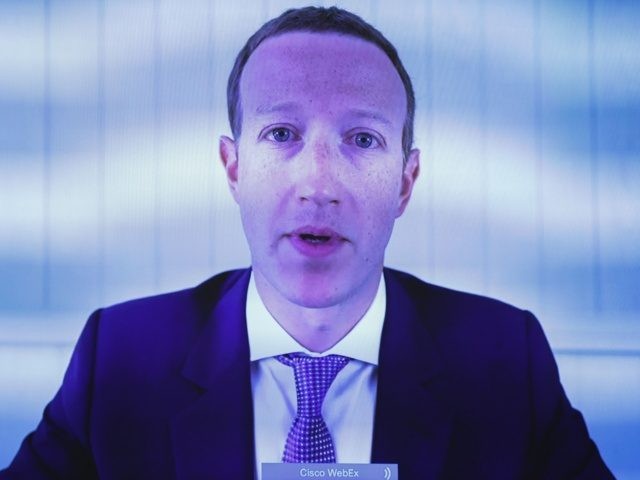In a recent article, the Verge outlines Facebook CEO Mark Zuckerberg’s future vision of social media: the development of an interconnected set of experiences Zuckerberg called the “metaverse.”
The Verge reports in an article titled “Mark in the Metaverse,” that Facebook CEO Mark Zuckerberg sat down with employees in June to announce an ambitious new initiative. Zuckerberg said that the future of Facebook would go far beyond its current aim of building a set of interconnected social apps with some hardware to support them; instead Facebook would strive to build a maximalist, interconnected set of experiences known as the “metaverse.”
Zuckerberg said that the company’s divisions focused on products for communities, creators, commerce, and virtual reality would increasingly work towards the creation of this metaverse. In a remote address to employees, Zuckerberg stated: “What I think is most interesting is how these themes will come together into a bigger idea. Our overarching goal across all of these initiatives is to help bring the metaverse to life.”
Zuckerberg said his address that the company plans to build a more maximalist version of Facebook, spanning social presence, office work, and entertainment. Zuckerberg stated that he believes the metaverse will bring enormous opportunity to individual creators and artists; to individuals who want to work and own homes outside urban centers; and to people living in places where education and recreation opportunities are limited.
Discussing the metaverse, Zuckerberg told the Verge:
This is a big topic. The metaverse is a vision that spans many companies — the whole industry. You can think about it as the successor to the mobile internet. And it’s certainly not something that any one company is going to build, but I think a big part of our next chapter is going to hopefully be contributing to building that, in partnership with a lot of other companies and creators and developers. But you can think about the metaverse as an embodied internet, where instead of just viewing content — you are in it. And you feel present with other people as if you were in other places, having different experiences that you couldn’t necessarily do on a 2D app or webpage, like dancing, for example, or different types of fitness.
I think a lot of people, when they think about the metaverse, they think about just virtual reality — which I think is going to be an important part of that. And that’s clearly a part that we’re very invested in, because it’s the technology that delivers the clearest form of presence. But the metaverse isn’t just virtual reality. It’s going to be accessible across all of our different computing platforms; VR and AR, but also PC, and also mobile devices and game consoles. Speaking of which, a lot of people also think about the metaverse as primarily something that’s about gaming. And I think entertainment is clearly going to be a big part of it, but I don’t think that this is just gaming. I think that this is a persistent, synchronous environment where we can be together, which I think is probably going to resemble some kind of a hybrid between the social platforms that we see today, but an environment where you’re embodied in it.
Zuckerberg later added:
By subscribing, you agree to our terms of use & privacy policy. You will receive email marketing messages from Breitbart News Network to the email you provide. You may unsubscribe at any time.
And I guess one broader point that I’d make here is, one lesson that I’ve taken from running Facebook over the last five years is that I used to think about our job as building products that people love to use. But you know, now I think we just need to have a more holistic view of this. It’s not enough to just build something that people like to use. It has to create opportunity and broadly be a positive thing for society in terms of economic opportunity, in terms of being something that, socially, everyone can participate in, that it can be inclusive. So we’re really designing the work that we’re doing in the space with those principles from the ground up. This isn’t just a product that we’re building. It needs to be an ecosystem. So the creators who we work with, the developers, they all need to be able to not only sustain themselves, but hire a lot of folks.
Read the full interview at the Verge here.
Lucas Nolan is a reporter for Breitbart News covering issues of free speech and online censorship. Follow him on Twitter @LucasNolan or contact via secure email at the address lucasnolan@protonmail.com

COMMENTS
Please let us know if you're having issues with commenting.